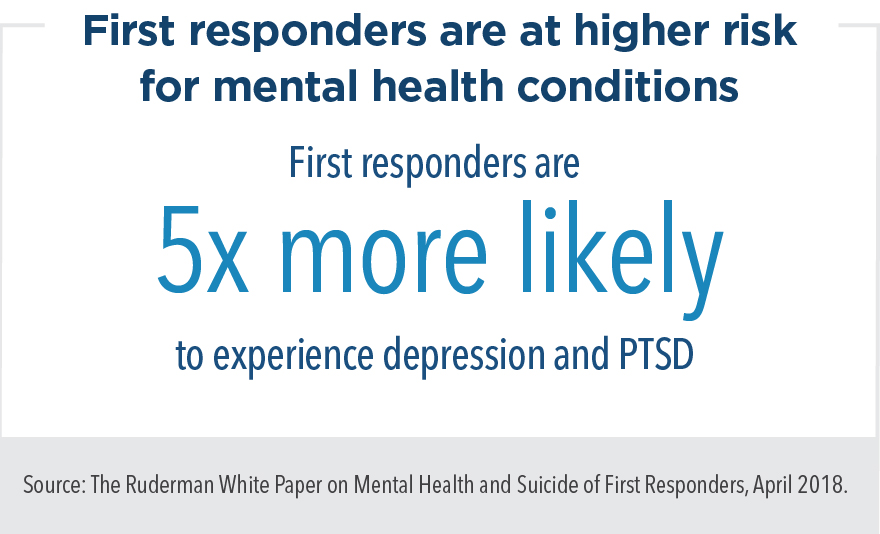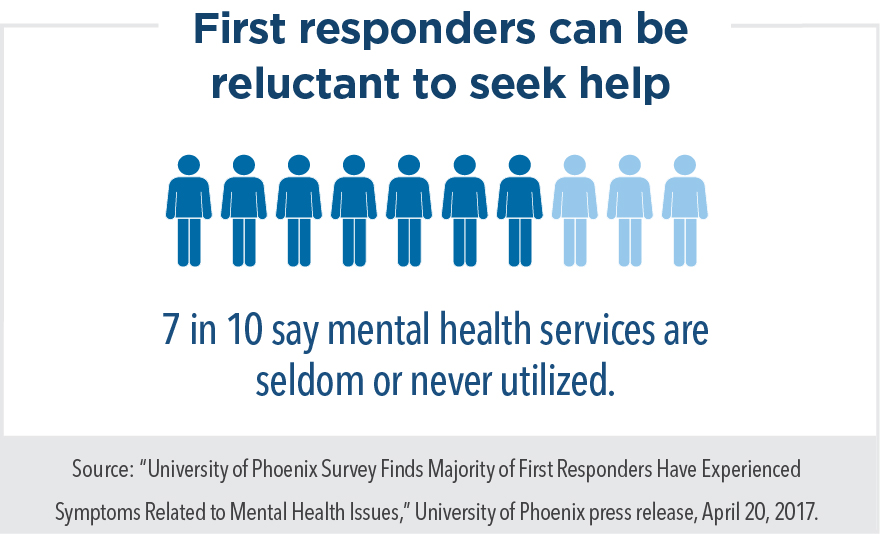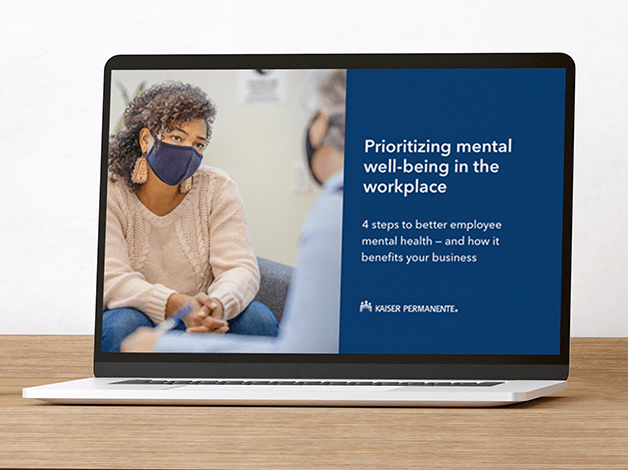Many mental health conditions, including depression, substance use disorder, post-traumatic stress disorder (PTSD), and even suicidal ideation, are more common among first responders. First responders undergo intensive training to prepare for their physically demanding and potentially dangerous jobs — but are they prepared mentally and emotionally? Employers have an opportunity, and an obligation, to take a proactive approach to protecting the mental health of their teams working on the front lines.
The unique challenges of first responders
Constant exposure to traumatic events and life-threatening situations — and the stress of working long hours away from family members and under high-stakes conditions — can easily build up and take an enormous toll on mental health.
- Police officers and firefighters are more likely to die by suicide than in the line of duty.1
- 85% of first responders have experienced symptoms related to mental health conditions.2
- Depression and PTSD are up to 5 times more common in first responders.3
The current situation around COVID-19 has only compounded the stressors first responders cope with daily. Employers must address these issues head-on — and provide their teams with robust mental health support.















